#little women (1949)
Explore tagged Tumblr posts
Text

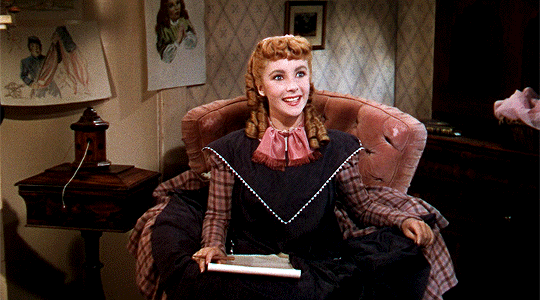
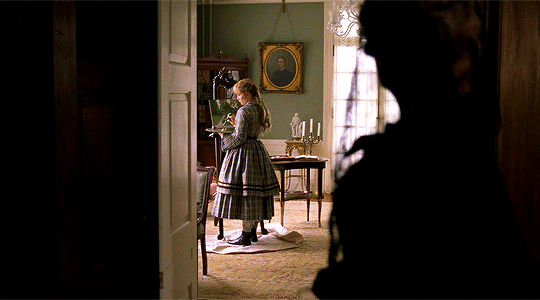
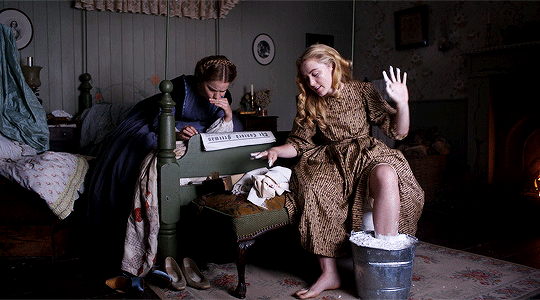
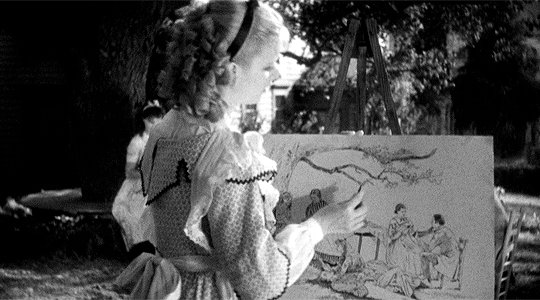



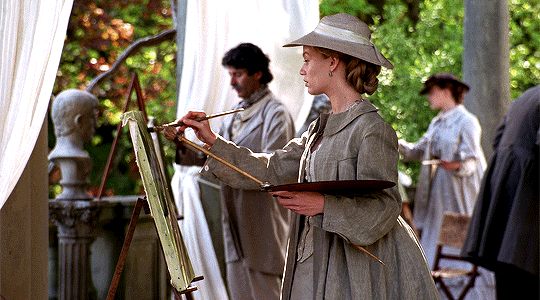
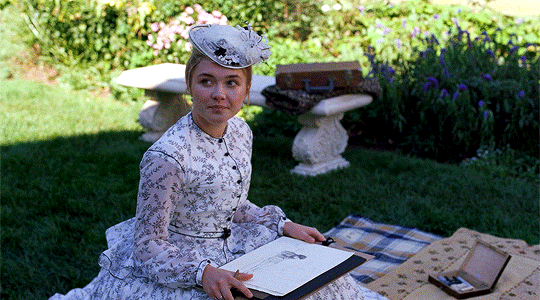

@pscentral event 23: arcs
"It takes people a long time to learn the difference between talent and genius, especially ambitious young men and women. Amy was learning this distinction through much tribulation, for mistaking enthusiasm for inspiration, she attempted every branch of art with youthful audacity." -- L.M. Alcott, Little Women
#little women#filmedit#perioddramaedit#classicfilmedit#vintageedit#adaptationsdaily#userrebekah#usertreena#userdanahscott#useralison#userchristie#userheidi#userrin#usershreyu#little women 1994#little women 1933#little women 1949#little women 2017#little women 2019#my edit#edit: concepts#pscentral#booksin2024#not all versions give it a lot of focus but i found this part of amy's subplot very relatable#if you see what i get up to on ig this isn't surprising maybe
1K notes
·
View notes
Text










Jo & Amy Hugs Throughout the Adaptations
Little women (1949) Little Women (1978) Little Women (2017)
#little women#littlewomenedit#little women (1949)#little women 1949#little women (1978)#little women 1978#little women (2017)#little women 2017#jo march#amy march#jomarchedit#amymarchedit#adaptationsdaily#perioddramasonly#perioddramacentral#perioddramasource#perioddramagif#perioddramadaily#weloveperioddrama#perioddramaedit
62 notes
·
View notes
Text
Ranking Portrayals of Amy x Laurie from Worst to Best
History- The best way to describe the couple is by alluding to another real-life story. David Bowie shared that when he met Iman, she was not at all interested in him, and if wanted to prove to her that he was serious, he had to work hard to win her; in his own words he described winning her as “it was as if she was a top a medieval tower, and in the process of reaching her, I became a better man, and never looked back.” This vibe is very much what makes Amy and Laurie a great couple, he the dreamer and emotional one, while she is the grounded and logical one. They balance each other out, and because they had known each other for so long, their love comes naturally and at ease that it makes sense they could love each other. They have known each other since they were young, and after much growth on their own characters, they find that they are meant to be.
2019- This is just bottom of the barrel when it comes to showing this couple. It’s funny, and while I am glad that people started to like Amy and the couple more because of this film, but let me tell you, they are not the best version. One issue that is had here is Amy’s character is so displaced. From the moment she meets Laurie, she is practically obsessed with him, plastering her foot so he may “remember what pretty feet I have” and running after him in a carriage screaming for him, when it is incredibly undignified for her to do. Amy plastered her foot because she wanted to try and explore other means of creating art, and it’s Laurie who sees her in Paris, chasing after her. This version really plays up the myth of Laurie “settling for Amy”, as he seems to not be that interested in her until she confesses her own feelings, and once again, Amy making a choice with the hope that Laurie is going to be waiting for her. I just didn’t see Laurie loving Amy as much as she loved him, and I didn’t find there to be much chemistry between the two actors as much as everyone said, not when he is so distant from her until the last moment.
1949- The problem with this film is that there is so little of them. I know that this was the same complaint of Meg and John in the 2019 film, so why aren’t I applying the same criteria to this listing? Because I would rather see so few of their interactions than see it played out incorrectly. The only real interaction they seem to have is during the party scene when Jo and Laurie get Amy and Beth food as they sit on the stairs. The only other hint of a relationship happening before the return from Europe is when Amy asks Jo, before leaving for Europe, if Jo would be alright if Laurie fell in love with another girl, hinting possibly something had happened while Jo went to New York. I think it’s a shame that we don’t see much of them, given that I think Elizabeth Taylor and Peter Lawford could have made a nice Amy x Laurie.
2018- This too suffers not having enough scenes with them, especially as adults, but I give this a pass given that the film follows Jo’s perspective more than the others. What I do like about this version is that we do see some sweet moments between them, both as children and adults, that it makes sense just how it could be possible that they fall for each other. Laurie was always so good to Amy as a child, so you understand why she, as a kid, would have a crush on him, which oddly bumps this over the 49’ film, but it allows me a better understanding why and how they fell in love. They are both creatives who are interested in what the other is doing, while Jo is focused on her own work, not necessarily caring what anyone else’s dream is, just what she thinks they ought to be.
1933- This one fare better than the 49’ film by showing more interactions between the characters that you can understand better here how they end up together. Notably, they share an interaction when Beth gets scarlet fever, and Laurie promises to take Amy out for a ride every day while at Aunt March’s, and then scene with Amy and Laurie in Europe after finding out Beth has died. I love their reunion in Europe, because it shows not only how Amy had matured from the start of the film, but also the incredibly tender look Laurie gives Amy as he comforts her, it’s so sweet and you can see the beginning of a romance blossoming between them.
1970- This is another one that really stayed true to text, and having that helps to get the audience on board with the pair. The first time they interact is when Laurie saves her from drowning, jumping in himself to save her and Amy clearly has a crush on him after this. When Laurie promises to take her out for a ride while she is at Aunt March’s there is a pretty adorable interaction where they make plans. At Meg’s wedding they already have hits of acting like a couple, when he spoke in French, “to you I surrender”, then taking her in his arms, and when dancing begins, Amy is the first person he goes to. Where they shine is when they meet again in Europe. This is incredibly faithful to the novel where Amy lays it out for him and Laurie chastises her for marrying only for money. I love the way Amy defends Laurie and is proud of him going away to London to do better things for himself. When he goes to comfort Amy, he promises to not go back to Paris as long as Amy wants him and promises to take care of her. This is the only version that shows them alone after being married, and the casual intimacy they share with each other is just precious. For book faithful, you are best to go with this one.
2017- This one was a surprise how much I liked it. I liked seeing scenes of them together, especially prior their trip in Europe, because it shows how much their relationship grows, especially the scene at Aunt March where they both talk about their faults and wishing to improve themselves. It shows their vulnerable side, which through the series, we hadn’t seen either of them show to anyone else. While we don’t get much of Amy reprimanding Laurie for his behavior, it still has them being honest with one another about their faults, encouraging the other to pursue their passions, and Kathryn Newton and Jonah Hauer-King have a wonderful chemistry together that I would very happily see them in another film where they are a couple. It’s in the looks they give each other, the simple gestures that help to show that, whether they know it or not, they are falling in love with each other, until it’s unavoidable. The scene where they admit their love, at the bank is an intimate moment, and has dialogue quite true to the book, as Laurie asks if Amy thinks they might be on the same journey that could last forever.
1978- Something I always like to see between Amy and Laurie is moments shared before going to Europe, and there is a great conversation between them about their desire to be skilled in art and music, and encouraging each other to chase their dreams. They are always so honest with each other, even if it is blunt and hurtful, in the end, they know they can take it. The scenes in Europe are so true to text that it made me so happy. I feel like so many versions do not play that out, and watching how their love went from being friends to how Laurie could realize that he never loved Jo, that his heroine of his opera stopped looking like Jo and was more like Amy, was adorable, you can really hear the sincerity in his voice when he says this. You can see how good of an influence Amy has on him, particularly when they see Jo after getting married, and she convinces him to speak to Jo about being married. I put this one higher than the 70’ miniseries, mainly because I felt the actors had a better chemistry together than the earlier version, and if you want something that overall shows the essence of Amy x Laurie, this one does the trick.
1994- I wasn’t expecting this one to be as high as it is, but I think the reason why is all the nuances that are in this version rather than just what we see. I always love seeing Amy and Laurie interactions before Europe, as it’s meant to be a softer version of friends to lovers, so to have a scene where Laurie and Amy are in the carriage, him comforting her as she worries over Beth and staying with Aunt March, and the precious moment where he promises to kisses her before she dies, and to have it come back later on was wonderful. His touching her nose, hinting at her little habit of the clothes pin on her nose, is the cutest little signs of affection between them, a sort of them thing. After their rather frank conversation of how they both are acting against their nature is very well done, showing that they can be honest with each other, and when Laurie goes to London to improve his behavior, it inspires Amy to do the same. What gets me hardest is when he receives the letter from Jo about Beth’s death and Aunt March in confinement, he doesn’t even finish the letter, just drops everything to rush to Amy’s side, proving that she was first on his mind, not Jo, and that he loved Amy more than her. This is the version to really get into Amy and Laurie, as it encapsulates everything that makes their relationship great.
#little women#amy march#theodore laurence#amy x laurie#amy and laurie#little women 1933#little women 1949#little women 1970#little women 1978#little women 1994#little women 2017#little women 2018#little women 2019
68 notes
·
View notes
Text












52 DAYS OF THE HOLIDAYS
DAY TWENTY FIVE: LITTLE WOMEN (1949) DIR. MERVYN LeROY
#little women#little women 1949#june allyson#margaret o'brien#elizabeth taylor#janet leigh#period drama#days of the holidays
8 notes
·
View notes
Text
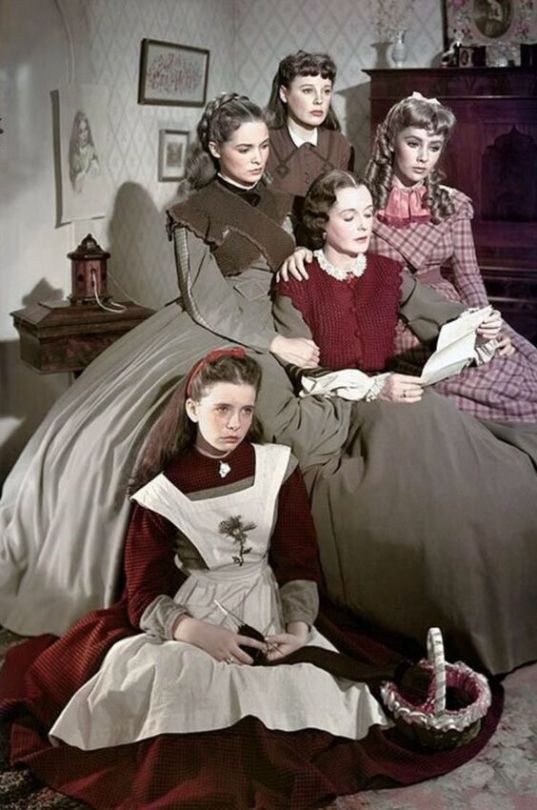
Little Women (1949).
45 notes
·
View notes
Text
#little women#little women 1933#little women 1949#little women 1994#little women 2017#little women 2019#polls#louisa may alcott
12 notes
·
View notes
Text
"LITTLE WOMEN" (1949) Review
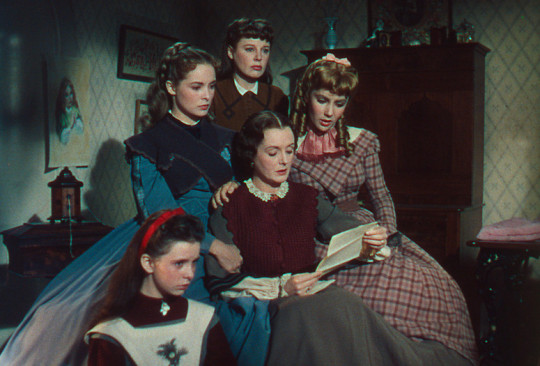
"LITTLE WOMEN" (1949) Review
Louisa May Alcott's 1868 novel is a bit of a conundrum for me. I have never been a fan of the novel. I have read it once, but it failed to maintain my interest. Worse, I have never had the urge to read it again. The problem is that it is that sentimental family dramas - at least in print - has never been appealing to me. And this is why I find it perplexing that I have never had any problems watching any of the film or television adaptations of her novel.
One of those adaptations proved to be Metro-Goldwyn-Mayer's 1949 adaptation, which was produced and directed by Mervyn LeRoy. It is hard to believe that the same man who had directed such hard-biting films like "LITTLE CAESAR", "I AM A FUGITIVE FROM A CHAIN GANG" and "THEY WON'T FORGET", was the artistic force behind this sentimental comedy-drama. Or perhaps MGM studio boss, Louis B. Meyer, was the real force. The studio boss preferred sentimental dramas, comedies and musicals. Due to this preference, he was always in constant conflict with the new production chief, Dore Schary, who preferred more realistic and hard-biting movies. Then you had David O. Selznick, who wanted to remake his 1933 adaptation of Alcott's novel. One can assume (or not) that in the end, Meyer had his way.
"LITTLE WOMEN", as many know, told the experiences of the four March sisters of Concord, Massachusetts during and after the U.S. Civil War. The second daughter, Josephine (Jo) March, is the main character and the story focuses on her relationships with her three other sisters, the elders in her family - namely her mother Mrs. March ("Marmee") and Aunt March, and the family's next-door neighbor, Mr. Laurence. For Jo, the story becomes a "coming-of-age" story, due to her relationships with Mr. Laurence's good-looking grandson, Theodore ("Laurie") and a German immigrant she meets in New York City after the war, the equally good-looking and much older Professor Bhaer. Jo and her sisters deal with the anxiety of their father fighting in the Civil War, genteel poverty, scarlet fever, and the scary prospect of oldest sister Meg falling in love with Laurie's tutor.
Despite my disinterest in Alcott's novel, I have always liked the screen adaptations I have seen so far - including this film. Due to the casting of Margaret O'Brien as the mild-mannered Beth, her character became the youngest sister, instead of Amy. Screenwriters Sally Benson, Victor Heerman, Sarah Y. Mason and Andrew Solt made other changes and they left out some of Alcott's memorable plot points from the novel's narrative. But these changes, however regretful a few of them were (namely Jo and Amy's conflict over the former's manuscript) did not have any real impact on Alcott's original story. Ironically, both Victor Heerman and Sarah Y. Mason wrote the screenplay for Selznick's 1933 film. This should not be surprising, considering that this adaptation bears a strong similarity to the earlier version. I thought Mervyn LeRoy's direction injected a good deal of energy into a tale that could have easily bored me senseless. In fact, MGM probably should have thank its lucky stars that LeRoy had served as producer and director.
As much as I admired LeRoy's direction of this film, I must admit there was a point in the story - especially in the third act - in which the pacing threatened to drag a bit. My only other problem with "LITTLE WOMEN" is that I never really got the impression that this film was set during the 1860s, despite its emphasis on costumes and the fact that the March patriarch was fighting the Civil War. Some might say that since "LITTLE WOMEN" was set in the North - New England, as a matter of fact - it is only natural that the movie struggled with its 1860s setting. But I have seen other Civil War era films set in the North - including the 1994 version of "LITTLE WOMEN" - that managed to project a strong emphasis of that period. And the production values for this adaptation of Alcott's novel seemed more like a generic 19th century period drama, instead of a movie set during a particular decade. It is ironic that I would make such a complaint, considering that the set decoration team led by Cedric Gibbons won Academy Awards for Best Art Direction.
I certainly had no problems with the cast selected for this movie. Jo March seemed a far cry from the roles for which June Allyson was known - you know, the usual "sweet, girl-next-door" type. I will admit that at the age of 31 or 32, Allyson was probably too young for the role of Jo March. But she did such a phenomenon job in recapturing Jo's extroverted nature and insecurities that I found the issue of her age irrelevant. Peter Lawford, who was her co-star in the 1947 musical, "GOOD NEWS", gave a very charming, yet complex performance as Jo's next door neighbor and friend, Theodore "Laurie" Laurence. Beneath the sweet charm, Lawford did an excellent job in revealing Laurie's initial loneliness and infatuation of Jo. Margaret O'Brien gave one of her best on-screen performance as the March family's sickly sibling, Beth. Although the literary Beth was the third of four sisters, she is portrayed as the youngest, due to O'Brien's casting. And I feel that Le Roy and MGM made a wise choice, for O'Brien not only gave one of her best performances, I believe that she gave the best performance in the movie, overall.
Janet Leigh, who was a decade younger than Allyson, portrayed the oldest March sister, Meg. Yet, her performance made it easy for me to regard her character as older and more emotionally mature than Allyson's Jo. I thought she gave a well done, yet delicate performance as the one sister who seemed to bear the strongest resemblance to the sisters' mother. Elizabeth Taylor was very entertaining as the extroverted, yet shallow Amy. Actually, I have to commend Taylor for maintaining a balancing act between Amy's shallow personality and ability to be kind. The movie also featured solid performances from supporting cast members like Mary Astor (who portrayed the warm, yet steely Mrs. March), the very charming Rossano Brazzi, Richard Stapley, Lucile Watson, Leon Ames, Harry Davenport, and the always dependable C. Aubrey Smith, who died not long after the film's production.
Overall, "LITTLE WOMEN" is a charming, yet colorful adaptation of Louisa May Alcott's novel. I thought Mervyn LeRoy did an excellent job in infusing energy into a movie that could have easily sink to sheer boredom for me. And he was enabled by a first-rate cast led by June Allyson and Peter Lawford. Overall, "LITTLE WOMEN" managed to rise above my usual apathy toward Alcott's novel.
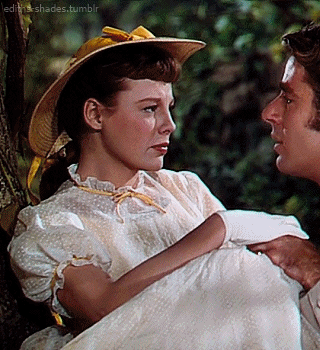
#little women#louisa may alcott#little women 1949#june allyson#janet leigh#elizabeth taylor#margaret o'brien#mary astor#peter lawford#leon ames#rossano brazzi#lucile watson#c. aubrey smith#elizabeth patterson#mervyn leroy#harry davenport#richard stapley#connie gilchrist#ellen corby#andrew solt#sarah y. mason#victor heerman#old hollywood#period drama#period dramas#costume drama
5 notes
·
View notes
Text

MDZS x Brazil (1985)
(Yes. Real movie dialogue)
#poorly drawn mdzs#mdzs#MDZS AU#lan wangji#wei wuxian#Backstory to this is 'we recently watched Brazil (1985) and this scene make us lose our minds.'#Brazil (1985) is best described as 'The Monty Python Crew does an adaptation of George Orwell's 1984 (1949).' Because it is.#And let me just say. I think it is the perfect adaptation. Somehow this film manages to be one of the best dystopia satires out there#While also being a genuine critique of capitalism and burocracy.#Plus the practical effects and set design were outstanding.#The 'romance' in this movie was definitely also a satire.#It is unbelievably wacky. I'm dead serious when I say this comic is beat for beat something that happens in the film#Guy who told this women *nothing* about the peril she's in form the government tells her he (legally) killed her.#She responds by saying “Care for a little necrophilia?” with NO ROMANTIC LEAD UP.#THE MUSIC SWELLS. HE TEARS OFF HIS JACKET AND DIVES INTO THE BED. SCENE END.#Jill Leyton has incredible range as a hot butch and hot femme. Was the line bizarre? Yes. She can pull it off though.#We paused and watched it back a few times. I wasn't intending to make a crossover this obscure but honestly...#It's...it's too good of a fit to pass up. Wei Wuxian *would* say that...
1K notes
·
View notes
Text
Minor correction: the second film version was released in 1949, not 1945.
Otherwise, this is so spot-on. I hated the 2019 film adaptation with a passion, and you nailed pretty much everything I hated about it.
So I watched four Little Women movies
1933: Nice movie, classic. The costumes looked so good. Laurie had such a big head.
1945: Sort of remake of the first one. Liked Jo’s energy in this one. The father is younger. Laurie gets better (prettier). His grandfather looks like a muppet.
1994: Beautiful. Great music, great actresses. Jo has a different energy but she’s great. Loved seeing Amy growing up. Laurie gets better (he’s a doofus here). Lots of actresses I like a lot, so may be a little biased. The costumes were pretty even though they had less fabric and structure.
2019: WTH? Some scenes of this movie are 50% talking and laughing, 50% monotone music. Why is it so fast? Why is it so slow? It takes several seconds to know what’s going on with the timeline. Don’t like Jo’s energy in this one. Seems like nobody is how they should be. Emma Watson doesn’t look elegant or poised enough to me. Beth is boring. Amy is so annoying. Even Laura Dern and Meryl Streep’s acting is off. I got a big headache. I wanted to like Laurie. There are many great actors, but none of them are good here. Beth is sick and gets the piano and Amy kisses her and all I can think is she’s spreading scarlet fever everywhere. The ending is so long. Is it real, it’s not?
#little women#little women 1933#little women 1949#little women 1994#anti little women 2019#I hated little women 2019#sorry but the 2019 was a huge deception
17 notes
·
View notes
Text
In honor of the anniversary of Little Women's publication, a Wizard of Oz fan group I follow on Facebook shared this trivia.
In the 1949 film of Little Women, the basket that Margaret O'Brien's Beth carries is the same basket Judy Garland had carried as Dorothy.
Mervyn LeRoy produced both movies (and directed Little Women). And by coincidence, in 1944, Garland and O'Brien had played sisters in Meet Me in St. Louis.


@littlewomenpodcast, @joandfriedrich, @thatscarletflycatcher, @fandomsarefamily1966
#little women#1949#the wizard of oz#judy garland#dorothy gale#margaret o'brien#beth march#mervyn leroy#mgm#movie trivia#recycled props
27 notes
·
View notes
Text
the greta gerwig little women will never be as good as the winona ryder one BUT as a certified amy girlie (tm, gn) i am at least glad of her screentime and understanding and an end to the unneeded amy hate. she deserves it.
#nat.txt#sorry im a certified little women 2019 costume hater#their HAIR??? sickening. where are the BONNETS#coincidentally i do quite like the 2017 tv series little women#and i really like the 1949 one too tbh#the gerwig one is my least favourite but that doesnt mean i DONT like it#i just. the costumes.....#and im not ALWAYS a costume purist bc i understand allowances made for Style#(bridgerton? absolutely not accurate but so very in fitting with the vibe of the show)#but little women 2019 was clearly not intended to have Bad Costumes for the style. it just does
8 notes
·
View notes
Text

June Allyson and Rossano Brazzi in Little Women (1949)
#ok so this was my intro to the story I watched it in hs I think and had a massive crush on Freidrich omg#and then years later watched summertime and realized it was same dude#<3<3<3#June Allyson#Rossano Brazzi#Little Women (1949)
3 notes
·
View notes
Text








Elizabeth Taylor as Amy March & Peter Lawford as Theodore “Laurie” Laurence
Little Women (1949)
#little women#little women 1949#little women (1949)#amy march#laurie laurence#theodore laurence#elizabeth taylor#peter lawford#amylaurie#amy x laurie#laurie x amy
11 notes
·
View notes
Text
Ranking Portrayals of Jo x Friedrich from Worst to Best
History- They are one of the best examples of friends to lovers I have seen; starting off as strangers who grow closer due to close compacity, being nerds over their love of books, philosophy, and family. While he fell first, he was incredibly respectful of her space and choices, only acting when he felt there was a chance. Jo, while oblivious at first, started to realize how strong her feelings are, then it verges into two idiots in love, where they are afraid to admit to the other that they love them, until Jo breaks down when she realizes she could lose Friedrich. Then comes one of the greatest declarations of love ever, ending with him lamenting he doesn’t have anything to offer but his full heart and empty hands, and she grabs them to declare “not empty now.” How can anyone not love them is beyond me. The core of their relationship is based on respect and understanding, he the calm to her chaotic, the introvert and the extrovert. As much as they appear to be opposites, they are also so closely in sync with one another that it’s no wonder they are meant to be. What makes this couple even better is knowing that Jo and Friedrich are the expy of Alcott and her love for Henry David Thoreau, of whom she was unable to be with as he died. This is a couple I will defend to my dying day, and I am sure even beyond.
2019- Are you surprised by this point, presuming you read my two other posts, that this would be at the bottom? This one broke me in terms of the portrayal, because it was the most frustrating of any couple that was shown here. It started off fine, we could see Friedrich having heart eyes for Jo, while she is oblivious, which is on par with her, and then we see them dancing and his giving her Shakespeare to help her writing. This was good, true to text. What killed it was the scene where Jo asks Friedrich to read her writings, and she throws a temper tantrum that could rival a kindergartener. For the first time, I had actually said to myself, what does Friedrich see in her, dude you could do better! And that is sad for a couple that I have loved since I was 12. The other thing was that see didn’t even seem interested in him at any point, maybe in the beginning, but other than that, I did not see any kind of connection that would warrant her sisters to push her into chasing after him. And I hate the “choose your own ending” style, because that is not what happened in the book, and ruins a beautiful relationship that was built on friendship and respect, something Jo needed at that point. It had a chance for so much potential, but much like everything else with this film, it failed so hard.
1970- This was one of the few good points of the 70 version, as it is very close to the book, and also the actors did a very good job of showing friends to lovers’ relationship. I like that the first time they met, she mistakes him for a servant, and rather than refuse to help her, he gladly takes her suitcases. The way he remembers who each of her family members are when they talk about her letter is very sweet, and much like the book, Jo has been helping Friedrich with mending his socks and his offering to teach her German as repayment. We see them playfully teasing each other, showing the ease they have, and they discuss the issue of the Volcano writings with maturity and not shouting at each other like other versions make them. Their reunion in Concord is what makes it, when he meets Laurie, he is clearly willing to step aside but is happy to find he is married and Jo is free, and Jo is all heart eyes and defends Friedrich to everyone who say that he is too old and funny, and points out all the great points about him. The added scene of him trying to propose but being stopped by Mr. March is nice, because you can see that Jo was disappointed that it didn’t happen. I am not entirely in love with their love declaration, as it feels unlike them, with Friedrich telling her what is expected of a German wife, which is never said in the book. Overall, it’s fine, but not great.
2017- This one has so many moments from the book that is not included in others, like Jo first seeing Friedrich helping a child carry a heavy bucket of coal, the pair going to a symposium to discuss philosophy, and their lessons in German (which was nicely played out with him reading German and she translated it out loud in English for the kids). I wish there was more scenes with them, because I think that Maya Hawke and Mark Stanley really got the look and behaviors down pact for their characters, but I do love that you can see the growing friendship of the pair, how he gives her violets before she leaves (in Victorian times, it represented faithfulness), how when she comes back and Laurie confesses his love and tries to bash Friedrich, she defends him vehemently, and the glimpse of him collecting her stories from magazines after she had left. I was disappointed in the lack of the Under the Umbrella scene, because I am sure they would have nailed it, though you could argue that their reunion was that, and I did love that Amy was first to say that she and the rest of the family loves him and pretty much can’t wait for him to join the family. Probably the most book faithful version, but I wish it had more, which sadly, knocked down a peg.
1933- This was one of, if not the first, film adaptation that I had ever seen, and I had always remembered the love story between Jo and Friedrich. I was enchanted by their first meeting, as he was seen as a kind man to children and the maid, and clearly Jo was impressed too. The actors truly captured the essence of Jo and Friedrich, her passionate nature and his grounded nature, and you see why they are drawn to each other, they balance each other out. I love the way they reunite at the end of the film, neither caring if they get wet, and the way Katharine Hepburn welcomes him into the house with so much love and happiness that you can’t help but to feel the love. This version is a watered-down version of the novel, but it’s well acted, and Katharine Hepburn and Paul Lukas started the Jo x Friedrich ball rolling very well.
1949- While this one is heavily lifted from the 33’ film, there is something different between the two actors, and a few script changes. In many ways, this one is closest in terms of vibes to the novel. Jo meets Friedrich on the stairs with kids, loses a button, and when they get to talk again, they discuss music, writing, and you can see the beginnings of something sweet between them. Unlike the 33 film, Friedrich’s love confession is interrupted by one of the kids, and their next scene is when he talks to her about her writing, and this one really is the closest to the book, where he kindly explains how she could be a great writer, and she graciously accepts the criticism before sadly saying she has to go home. What elevated this one over the 33 film was the extra moment that appears here, in which Friedrich delivers her book, which is dedicated to the recently passed Beth. It’s such a heartwarming moment and shows not only how much he loved her writing, but had a hand in its publication, showing the extreme faith he had in her book. The chemistry between June Allison and Rossano Brazzi is effortless and lovely, it makes it easy for you to root for them with the little time you have with them.
1978- I am a little surprised at myself for how high I ranked this one, but after re-watching it, there was so much in this that I really loved. Their first meeting shows him playing with his nephews, a trait Jo always loved about him was how good he was to kids, his willingness to help her carry her stuff to her room, and -this was very swoon worthy to me- when she offered her hand to shake, he took it to kiss it. I also adore the moment when Friedrich finds Jo reading his Shakespeare, the look he gives her, almost as if he realized in that moment he was in love. While this version loses a point for them arguing about her writing, it gains so much in their other interactions, like their German lessons, his chasing after her carriage to give her a book with his inscription of encouragement, their letters back and forth, and his collecting her writings from the magazines. Their love confession is sweet too, when he tells her that he will take a wife, only if she’ll have him, and tenderly says, “Jo, my little love, will you have me?” Shatner may not be everyone’s favorite actor, but he did rather well in this version, and his delivery of the iconic “nothing to offer but a full heart and empty hands” was so lovely. Susan Dey gives just as good when she takes his hands and sweetly proclaim that they are no longer empty, they hold her hands now. Underrated, and rightly deserves to be as high on this on my list.
1994- This was the portrayal that many a young girl of my generation made them fall for Jo x Friedrich, and it’s no wonder. Winona Ryder and Gabriel Byrne had a wonderful chemistry that you just feel coming through the screen. Their meeting and getting to know each other shows exactly why they fall for each other, talking about books and philosophy, and while they do have an argument, it never gets as bad as the 78 version, and you can tell it’s more of Jo being upset at herself than Friedrich. Plus, who could ever forget the utterly beautiful and romantic the opera scene is, if that didn’t win you over, then you just have no heart, I guess. The under the umbrella scene is just as beautiful, again, shows how Friedrich really was ready to sacrifice his own happiness for Jo, if it meant she loved someone else, and the incredibly enthusiastic and tender exchange the empty hands dialogue, that I can’t imagine the film to end in any other way.
2018- For my fellow Jo x Friedrich shippers, this is the film for you. Since this version follows Jo during her time in New York, we get plenty of Jo and Freddy interactions here that made me so happy and giddy. They met at college where he offers to be her editor, which is very true to the book, and you can see just why they fell for each other. They share a common interest in theatre and books, talk about life, and you can really tell that Freddy loves Jo for who she is, despite her unusual ways. You can tell that even though they had argued, there is still so much respect and love there, and that it hurts them to have left things the way they were. While we do not get the under the umbrella scene, we do get an incredible attic scene where he sees the source of her muse, the source of her, and you can see him falling in love with her all over again. And I love seeing them getting married at the end, shows the growth that Jo makes through this story, how she realizes that change can be good, and that a good man like Freddy made her see that.
#little women#jo march#friedrich bhaer#jo x friedrich#jo and friedrich#little women 1933#little women 1949#little women 1970#little women 1978#little women 1994#little women 2017#little women 2018#little women 2019
21 notes
·
View notes
Text
The end of Little Women hits a LOT different when you’re in your 30s and still single than it does when you’re 16 and hopeful.
4 notes
·
View notes
Text
Little Women adaptions somehow gather the most popular actors for every era one’s made. Who sold their soul for that?
#like obviously we all know the 2019 one and the 2018 tv one#but like 1994 had Christian Bale and Winona Ryder and more#and 1949 had Elizabeth Taylor and Janet Leah and more#heck even the 1918 one (for being 1918) had a decent cast that would go on to do more in film#little women
1 note
·
View note